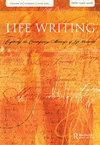On Learning to Love Your Mother-in-law: Remembering La Ménage in Colonial and Postcolonial Algeria
IF 0.5
3区 文学
0 LITERATURE
引用次数: 0
Abstract
ABSTRACT Before my mother-in-law Fatima comes to visit us from Algiers, a monumental cleaning of our already relatively tidy home occurs. The cleaning begins weeks before her arrival, and the day before her flight lands is one of anxiety and arguments as each member of the family blames another for their failures of cleanliness and order. Fatima keeps house with a ferocity that is matched only by her stamina, and she expects us to do the same. It might sound as though Fatima is cleaning house the way women have cleaned houses for generations before her, but this is not the case. Fatima is Kabyle Algerian and a first generation born in Algiers centreville. Her own mother learned to keep house from a French colon, while Algeria was still a colony of France (1830–1962). Fatima is nearing eighty, so my desire to record her relationship with la ménage is a way of documenting a life that might otherwise seem less than extraordinary. Biography, historical research and memoir combine in this essay where I interrogate intimate domestic spaces and their intersections with historical and political events, forming a feminist inquiry into the way women negotiate power in colonial and patriarchal societies, challenging myths of passivity and subjugation and complicating ideas about gendered domestic spaces.学习爱你的婆婆:回忆殖民地和后殖民时期的阿尔及利亚
摘要在我的婆婆法蒂玛从阿尔及尔来看望我们之前,我们已经相对整洁的家进行了一次大扫除。清洁工作在她抵达前几周开始,在她的航班降落的前一天,由于家庭中的每个成员都将自己的清洁和秩序问题归咎于另一个成员,因此充满了焦虑和争论。法蒂玛以一种只有她的耐力才能与之匹敌的凶猛持家,她希望我们也这样做。听起来法蒂玛好像在像她之前几代女性打扫房子一样打扫房子,但事实并非如此。法蒂玛是卡比尔阿尔及利亚人,第一代出生在阿尔及尔中心城。当阿尔及利亚还是法国的殖民地时(1830-1962),她自己的母亲从法国人那里学会了持家。法蒂玛快80岁了,所以我想记录她与la ménage的关系,这是一种记录生活的方式,否则这种生活可能看起来并不非凡。传记、历史研究和回忆录在这篇文章中结合在一起,我审问了亲密的家庭空间及其与历史和政治事件的交叉点,对女性在殖民地和父权社会中谈判权力的方式进行了女权主义调查,挑战了被动和征服的神话,并使关于性别化家庭空间的想法复杂化。
本文章由计算机程序翻译,如有差异,请以英文原文为准。
求助全文
约1分钟内获得全文
求助全文

 求助内容:
求助内容: 应助结果提醒方式:
应助结果提醒方式:


